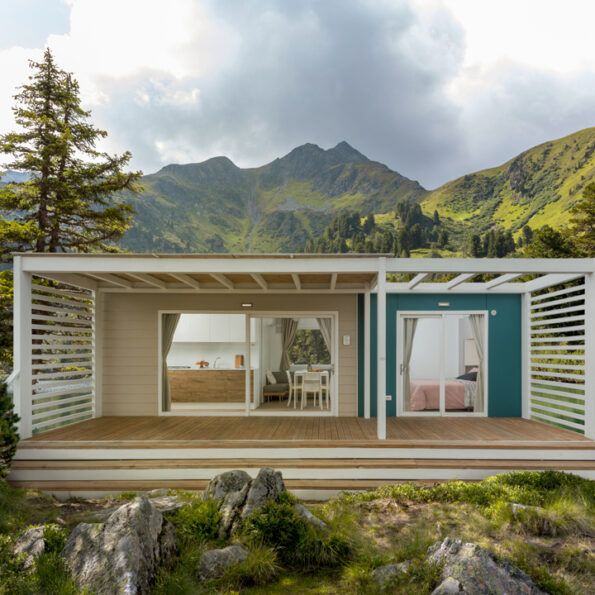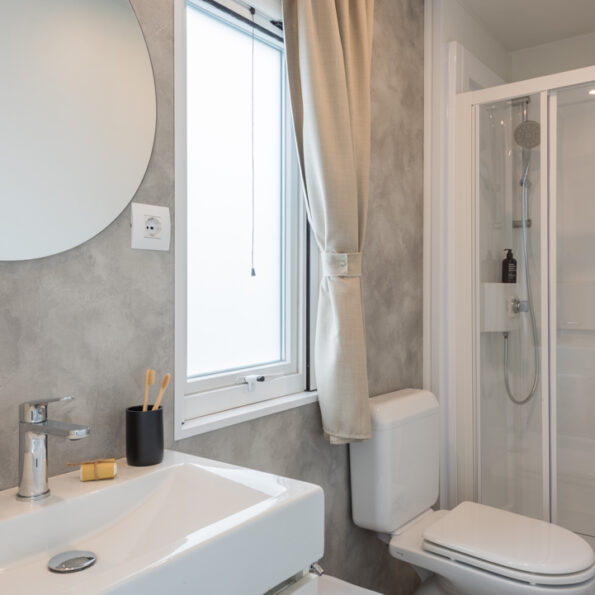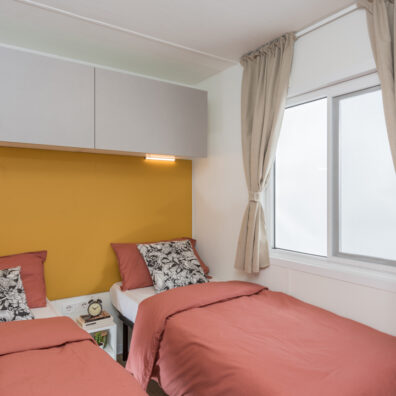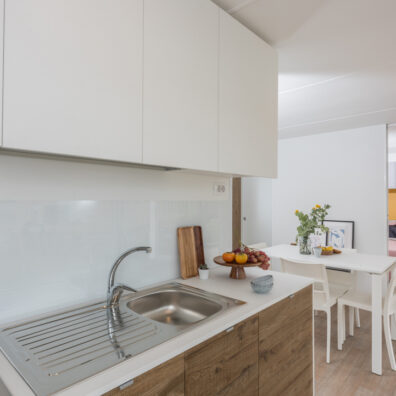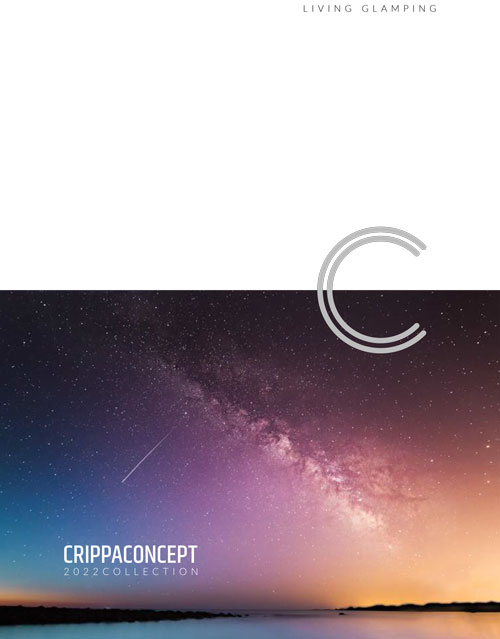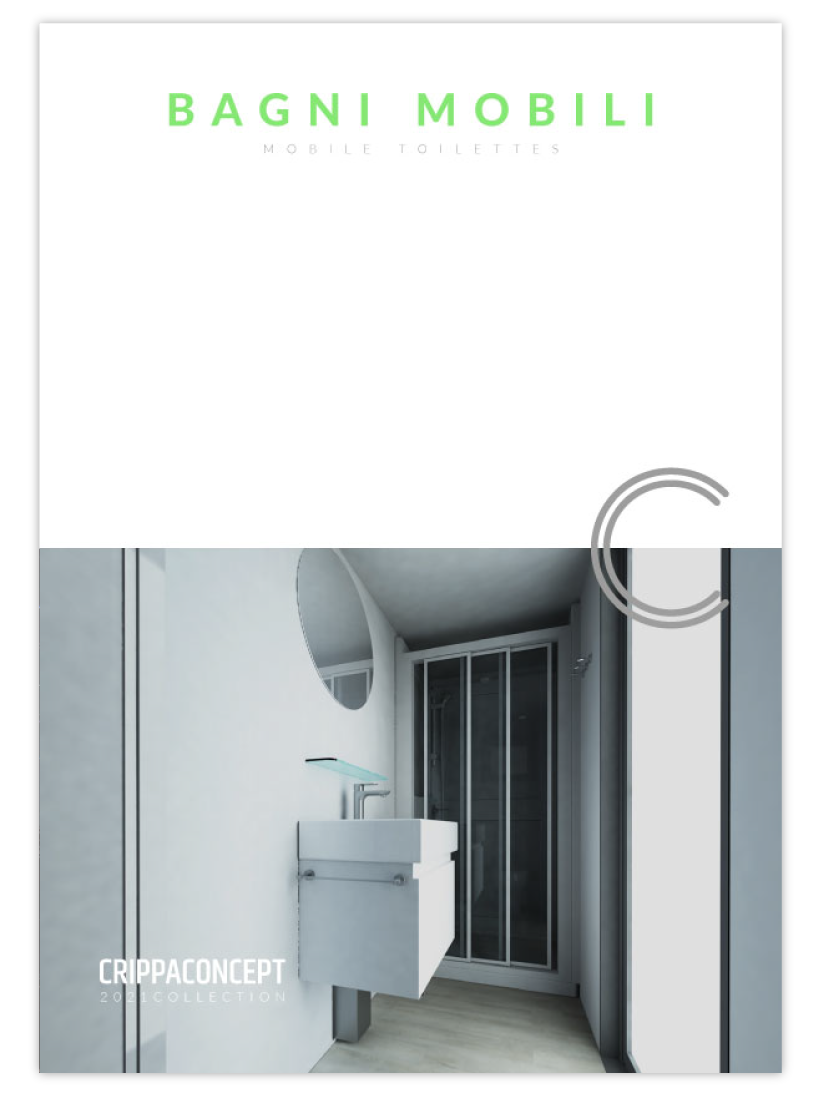Using mobile homes designed for open-air tourism to accommodate those who no longer have a home. The application in a German project to help Ukrainian refugees that starts from local integration implemented by creating a residential district of maxi-caravans.
In the town of Waiblingen, Germany, Crippaconcept is participating in an accommodation project conceived by the German-Italian Alfonso Fazio. The group leader at the municipal council of the city of Waiblingen and honorary deputy mayor of the city is adopting some of the company’s products as an alternative to common containers. The aim is a comfortable solution that ensures a dignified and functional stay, even if temporary, within the community for a group of refugees who arrived in the German village after fleeing the war.
At the moment, ten maxi-caravans are coming from Italy to create a residential district within the German town to start an important integration project: the refugees will come into contact with residents thanks to the geographical proximity of their homes, while obtaining assistance in finding work and a permanent home.
“People who are welcomed in crisis situations must be able to create decent social networks in order to integrate,” says Sergio Redaelli, CEO of Crippaconcept, who has overseen the project. “Housing is often in containers, isolated from urban districts; this project instead aims to bring refugees in close contact with people they might otherwise only occasionally have met or encountered.” He continues, “It’s not just a mobile home. It’s something more profound, it’s sharing and living together.”
With a size of about 40 m², with no land consumption, no need for a traditional building permit and no foundations, the maxi-caravan is large enough for a family of four to five.
In this project, Ukrainian refugees agree to maintain the mobile home for the time necessary for a fixed dwelling or repatriation. Alfonso Fazio and the Municipality of Waiblingen organise and financially support the programme until the residential complex is dismantled or relocated for other emergency needs. Refugees should stay for about six months; if they aren’t ready to leave at that point, they can stay or another family can take their place.
While refugees live in the mobile home, they will also be offered support from social workers to find work and an apartment, while obtaining financial support and healthcare. In addition, they will also receive social support from their neighbours. “When you live in contact with the local community, someone will try to help you find work or simply find your place in the community, with your children,” says Sergio Redaelli. “I’m sure it’s definitely better for people’s well-being, especially those who are so hard-pressed.”
The maxi-caravans are designed with natural, recycled and recyclable materials and can be integrated into the environment to mitigate any effects on the landscape.
The Municipality of Waiblingen project will begin this month as soon as the mobile homes arrive, having been produced in Italy and delivered ready for use. The local social assistance agency collaborating in the Municipality’s project will help welcome the first refugees.
“This project can certainly be a driving force for others of this kind, and represents a good example of application outside the usual scope of camping,” says Redaelli. “We hope that other municipalities, both in Germany and in Italy, will also find this initiative valid and take inspiration from it.”
The United Nations Refugee Agency estimates that there are currently millions of people seeking asylum, so the need for housing will increase. If the Waiblingen-Fazio model works, there could be the opportunity to innovate accommodation models in Italy too with ad-hoc open-air projects, without land consumption, sustainable and dignified, which can be replicated for other notoriously unresolved emergency situations.

